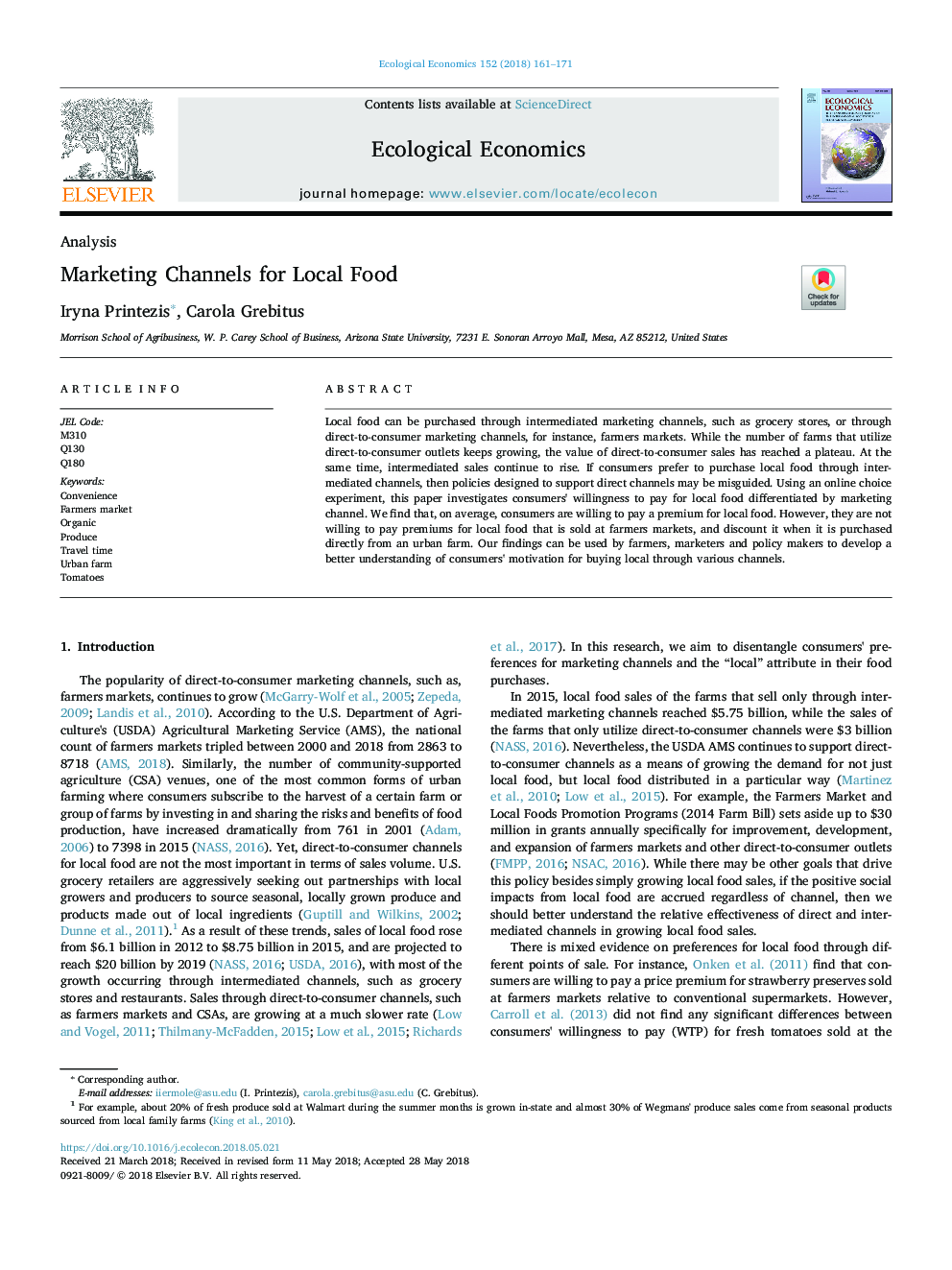| Article ID | Journal | Published Year | Pages | File Type |
|---|---|---|---|---|
| 7343806 | Ecological Economics | 2018 | 11 Pages |
Abstract
Local food can be purchased through intermediated marketing channels, such as grocery stores, or through direct-to-consumer marketing channels, for instance, farmers markets. While the number of farms that utilize direct-to-consumer outlets keeps growing, the value of direct-to-consumer sales has reached a plateau. At the same time, intermediated sales continue to rise. If consumers prefer to purchase local food through intermediated channels, then policies designed to support direct channels may be misguided. Using an online choice experiment, this paper investigates consumers' willingness to pay for local food differentiated by marketing channel. We find that, on average, consumers are willing to pay a premium for local food. However, they are not willing to pay premiums for local food that is sold at farmers markets, and discount it when it is purchased directly from an urban farm. Our findings can be used by farmers, marketers and policy makers to develop a better understanding of consumers' motivation for buying local through various channels.
Related Topics
Life Sciences
Agricultural and Biological Sciences
Ecology, Evolution, Behavior and Systematics
Authors
Iryna Printezis, Carola Grebitus,
